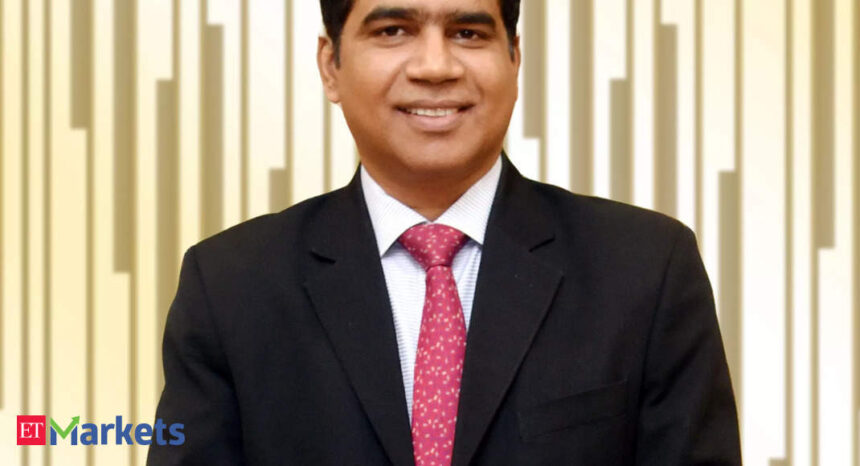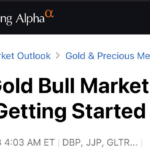In an interview with ETMarkets, Kumar said: “India is a shining economy and structurally well placed as an investment destination to command higher valuation and do reasonably well over medium to long term” Edited excerpts:
Market are climbing new peak every day with Sensex at 66,000 while Nifty50 is above 19,500 levels – is the market running ahead of fundamentals?
After nearly 18 months of consolidation, Indian Equity markets have had a strong run since April 2023. The performance of the Equity market has been aided by factors like the anticipation of a soft landing in the US with inflation coming off while labour market remains reasonably buoyant, strong domestic fundamentals, and the return of foreign flows (~Rs75,000 Crores since April).
The macroeconomic stability that India offers along with demographics, political stability, and strong and credible institutional framework is a rare commodity in today’s VUCA (Volatile, Uncertain, Complex & Ambiguous) world.
A lot of preparatory work has been undertaken over the past many years- Insolvency & bankruptcy code (IBC), Cleaning up of the bank’s balance sheet, RERA, Goods & Services Tax (GST), Jan Dhan (Financialization), Direct Benefit Transfer (DBT), Production linked Incentive Scheme (PLI) etc.
These measures will not only spur growth in coming years but will also increase the longevity of growth by bringing in economic efficiencies & by bringing the unorganized sector into the formal sector thereby laying a strong foundation for the longer-term secular growth that India can deliver.
While these factors make us structurally constructive on the India growth story, we have tempered our near-term expectations as we have to climb a few walls of worries over the next few quarters.
Even though the global growth has held up better than what we had anticipated, we believe as the lagged impact of the global synchronous monetary tightening will play out over the next few quarters, we will see sharp moderation in global growth.
This along with the withdrawal of global liquidity, domestic uncertainties like a monsoon, distribution of rainfall & a heavy political calendar will cap the near-term upside.
On the valuations front, at 21x FY24 earnings, we are indeed trading above the historical average and hence we may see some short-term correction given a sharp run-up over the last few months.
However, we believe that India is a shining economy and structurally well placed as an investment destination to command higher valuation and do reasonably well over the medium to long term.
Many call this a global rally as most of the global markets have done much better so far in 2023 and India is just catching up now. What is fuelling optimism?
Global equity markets had a strong run-up since the beginning of 2023. The rally has been spread across the developed world and Emerging Markets with markets like Nasdaq (42%), Nikkei (25%), Korea (16%) & India (10%) leading the price performance.
The sharp rise in the global market is mostly on account of the resilience of global demand despite aggressive rate hikes.
Globally, market participants who were anticipating a demand slowdown and hence had positioned themselves accordingly have been surprised with resilience of strong economic activity.
Of late, the rally has extended on the expectation of a soft landing with inflation cooling off while the job market remains reasonably buoyant. The expectation that we are at the fag end of the interest rate hiking cycle has also led to a significant softening of the US Dollar and consequent risk-on environment.
Considering risk-on environment, Indian equities have outperformed most of the Developed world and Emerging market counterparts which was also aided by the pause in the interest rate upcycle in India.
Also, a very important matrix that we track is the breadth of the rally. In that context, while the rally has been narrowing in some of the indices like Nasdaq where Top 10 stocks have contributed more than 85% of the gains the rally in India is significantly more broad-based with Mid cap & Small cap indices delivering strong returns in last few months.
Which sectors are likely to lead the next leg of the rally in markets?
We believe the direction of the market from hereon will be largely determined by earnings growth. In that respect, we are enthused by the earnings prospects of domestic facing sectors like BFSI, Cement, Infrastructure, Capital Goods, etc.
We believe that BFSI is in a very sweet spot with high growth visibility and controlled asset quality. While the margins have likely peaked, the earnings growth momentum will continue to be strong aided by strong advances growth & controlled credit cost.
NBFC’s will also see a significant pick up in earnings as the cost of funds peak out for them. Cement is also likely to surprise on the upside with strong volume growth leading to utilization reaching decade-high levels in some geographies.
This along with a sharp decline in Fuel & power cost (coal & petcoke) will aid margin expansion and consequently profit growth. Capital goods & Infrastructure is another space where we are positive as the order wins continue to remain robust providing significant visibility of earnings growth.
What do you make of the numbers delivered by big ticket IT companies in Q1?
Q1 results by large-cap IT companies have been far from impressive so far. We have been negative on the sector after sharp rise in price performance as the quarter was expected to be weak, and the weakness is indeed visible.
Amidst a double whammy of fall in growth rates and margin pressure, the only silver lining has been deal wins. With the full impact of the rate hike cycle yet to play out, it is widely anticipated that clients will scrutinize ROI’s in existing projects and rationalize spends.
As a result, we anticipate that the next few quarters will continue to remain slow in terms of growth. Margin pressure may however ease with delayed wage hikes, pyramid rationalization, higher utilization, and resolution of supply-side constraints leading to lower sub-contracting costs.
From the near-term, stock return perspective though, a pick-up in growth rate will be the major trigger over which there is limited clarity as of now.
However, from a structural perspective, we like the sector owing to stable growth, very strong free cash flow generation, capital allocation policies, and best-in-class governance.
Any sector(s) that you think are overvalued and investors can look at going underweight on/reduce exposure?
We are of the opinion that as the lagged impact of the synchronous global monetary tightening plays out over the next few quarters, we are likely to see growth moderation across the developed world.
In that context, we are underweight on sectors where linkage to the global economy is very high. Post the recent run up we have trimmed our exposure in Metals (even though Chinese stimulus can come anytime now), IT, Chemicals etc.
We believe that the current valuations in these sectors do not provide any margin of safety and hence we have reduced our exposures.
As far as domestic facing sectors are concerned, we have turned a bit cautious on the Autos & FMCG owing to continued weak consumer sentiments in rural India.
What is your take on the recent IPOs which have hit D-St in June and July? Most of them are not big-ticket names but still attracted a lot of interest. How should one approach the companies in 2023?
IPOs have been hallmarks of bull-market, and this time is no different. Like in any bull market, caution has to only increase when markets are in momentum.
One must be very selective while approaching new companies. Also, mediocre business at high valuations must totally be avoided. Selective IPOs can be considered, but scrutiny must be very high, especially on the quality & longevity of the business.
How do you pick stocks for investments? What are the filters you deploy?
The typical filters that we deploy start by assessing the opportunity size of the business which provides a sense on the growth potential of the company and an understanding of the business model. This is followed by a detailed study of the financial statements of the company with special emphasis on the cash flow statement, leverage profile & return ratios (ROE & ROCE).
We also lay significant emphasis on the corporate governance & historical track record of the promoters & management teams. Finally, we give due weightage to valuations.
Since quite a few parameters involve subjective assessment, we ensure that there is an adequate margin of safety when we chose investments.
In a nutshell, Opportunity size & growth potential, promoter, competitive advantage, return ratios, & valuations are the five primary filters that we employ when we pick stocks for our investments.
What is your take on HDFC Bank-HDFC merger? On paper it looks rosy but do you think there will be internal challenges? Do you see a similar consolidation in the industry?
Undertaking a merger of the size of HDFC-HDFC Bank is a herculean task and fraught with operational complexities especially related to IT systems, employee realignment, etc.
Over the next few quarters, we expect some of the management bandwidth may be occupied in resolving these complexities and hence there may be some near-term impact.
From a financial impact perspective, the most important issue that the management needs to address is deposit growth as the combined entity will lose its recourse to the bond market to fund its growth.
While the bank will see a moderation in its Net Interest margins (NIM’s) due to drag from CRR & SLR, the decline in cost to Income will mitigate a large part of the impact and hence we do not see any material impact on the ROA of the bank.
ROE’s will however decline owing to a lower level of leverage at the parent organization. However, from a longer-term perspective, we believe that there is a lot of synergies that can be extracted by simplifying the structure, expanding the product offerings, and cross-selling.
(Disclaimer: Recommendations, suggestions, views, and opinions given by experts are their own. These do not represent the views of the Economic Times)








